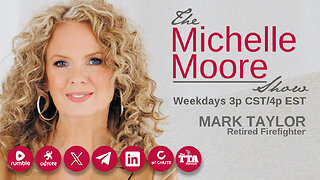Premium Only Content

What Are Typical Co-op Renovation Rules in NYC?
Save 2% When Buying in NYC: https://www.hauseit.com/hauseit-buyer-closing-credit-nyc/
NYC Buyer Closing Cost Calculator: https://www.hauseit.com/closing-cost-calculator-for-buyer-nyc/
Typical Co-op Renovation Rules in NYC: https://www.hauseit.com/co-op-renovation-rules-nyc/
What are the typical co-op renovation rules in New York City? We'll demystify this topic in the following video, I'm Nick at Hauseit. Visit our website https://www.hauseit.com to save money when buying or selling real estate here in New York City, so let's get started.
All co-op and condo buildings in New York City have renovation rules which you must follow as a unit owner. A co-op building’s rules renovation are usually listed in the building’s alteration agreement. This document must be signed by unit owner and submitted to management for approval along with supporting documentation before any work may commends. The main purpose of co-op renovation rules in New York City is threefold. To make sure that you propose renovations won’t harm the building, to ensure that you and your contractors have adequate insurance and three, to ensure that the construction is orderly and considerate of fellow residents.
Insurance. The construction industry in New York City is highly litigious and it's quite common for the contractors to sue clients, injured workers to sue apartment owners and buildings and everything in between. Therefore, under the terms of a co-op alteration agreement, each contractor is usually required to submit a gift certificate of liability insurance and worker's compensation naming the co-op managing agent, unit owner and the board of managers as additional insured on the certificate. A minimum of $1,000,000 in coverage is typically required by most buildings. Scope of work, co-op renovation rules are also designed to prevent apartment owners for making renovations which may harm the structure or mechanical of the building itself.
Co-ops will typically require a unit owner to pay for the building's architect and the engineer to review the plans of any proposed renovations. It's also common for co-ops and most owner condo buildings to prohibit apartment owners from increasing the amount of the electrical capacity in an apartment. Co-ops also typically require an inspection of any alteration before work is completed and signed off. For example, if you replace or repair the bathroom kitchen plumbing, the building may require that the super stop buying inspect the pipes before you allow to close the walls back up with dry wall. Some co-ops also have blanket prohibitions on specific types of alterations such as installing a wash or dryer or adding another bathroom.
Construction hours, co-op renovation rules always establish a frame work for construction hours, holidays as well as maximum number of weeks any construction alteration or renovation work may last. The typical co-op building in New York City usually only permits construction between 9AM and 5PM on weekdays. Furthermore, most co-ops prohibit workers for making any unusually loud noise until 10AM.
Most co-ops also prohibit any construction work on Saturdays, Sundays and public holidays. In rare instances, a co-op or condo may permit non-noise making work on the weekends such as plastering and painting. Many co-ops also prohibit the use of jack hammers or any unusually loud tools at all times in less prior approval given by the building. In addition, all co-op alteration agreements require unit owners to provide a minimum amount of notice to the building and immediate neighbors in advance of commencing any alteration work.
Co-ops may also restrict the total length of time you're allowed to renovate a common maximum is 4 months. Now, this is designed to prevent apartment owners from constantly changing their plans and creating a state of semi-permanent construction which will obviously harm the quality of life of other unit owners. Co-ops with elevator capacity issues may also count the number of apartments which are permitted to be renovated at the same time. In some buildings, this may result any renovation weight list.
Fees and liability. Most co-ops charge the non-refundable alteration agreement processing fee. In the same way, the charge the fee when submitting the application. In addition, many co-ops require a unit owner to make a deposit in advance of beginning any renovations. The deposit in returned provided that the alteration do not cause any damage to the common areas of the building.
Save 2% When Buying in NYC: https://www.hauseit.com/hauseit-buyer-closing-credit-nyc/
NYC Buyer Closing Cost Calculator: https://www.hauseit.com/closing-cost-calculator-for-buyer-nyc/
.
.
Hauseit LLC, Licensed Real Estate Broker
Tel: (888) 494-8258 | https://www.hauseit.com
_
#hauseit #hauseitnyc
-
 3:02:10
3:02:10
daniellesmithab
10 hours agoAlberta Next: Fort McMurray Town Hall
9.59K1 -
 2:11:17
2:11:17
Side Scrollers Podcast
19 hours agoINSANE Illegal Migrant Propaganda Xbox Game + Paypal REFUSES To Pay Dev + More | Side Scrollers
56.8K3 -
 20:58
20:58
GritsGG
1 day agoProtect the President Challenge on Warzone!
12.9K -
 1:49:07
1:49:07
The Michelle Moore Show
2 days ago'Biden's Immigration Mess, President's Trump Spiritual Cry For Help, English Speaking Truckers Only, Woke CEO's Killing of Conservative Brands, Palantir's Kill Chain' Mark Taylor: The Michelle Moore Show (Aug 25, 2025)
34K95 -
 LIVE
LIVE
Lofi Girl
2 years agoSynthwave Radio 🌌 - beats to chill/game to
213 watching -
 2:14:18
2:14:18
The Pascal Show
14 hours ago $0.64 earnedTHEY LIED TO POLICE AGAIN? Jake & Rebecca Haro Have Lost Their Minds! Emmanuel Haro Search Continues
8.48K -
 1:25:52
1:25:52
TruthStream with Joe and Scott
2 days agoSG Sits Down w/ LT From "And We Know": An 80K FT View of Humanity's Great Awakening from 8/22/2025
20.9K16 -
 15:54
15:54
Lacey Mae ASMR
12 hours ago $0.88 earnedASMR For Sleep in 15 Minutes!
13.1K10 -
 3:16:38
3:16:38
Price of Reason
13 hours agoTrump FIRES Fed Governor Lisa Cook! Cracker Barrel CRISIS Continues! James Gunn DCU Woes! Gamescon!
116K8 -
 2:25:01
2:25:01
FreshandFit
8 hours agoTyreek Hill Pays Ex Wife $1 Million in Ongoing Fees From Divorce?!
37.5K4